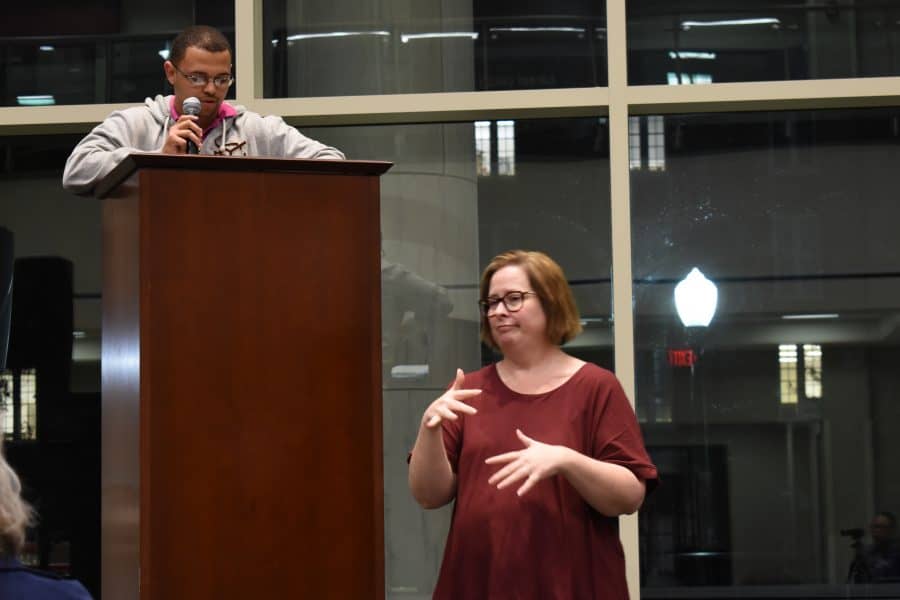A panel regarding disabilities on campus gave a greater perspective to the difficulties students and faculty face in their everyday lives. Fifty people gathered on Wednesday to hear seven panelists from different backgrounds talk about their experiences.
Darby McQueen, a senior majoring in social work and president of the University of Alabama’s Zebras, discussed two concerns with life on campus.
First is the fact that there are not enough seats in the stadium for all disabled students. McQueen, having four chronic illnesses, can not stand for long periods of time.
“We’re big into football loyalty but I can’t stand for four quarters,” McQueen said. “Therefore I can’t stay for four [quarters].”
She was also concerned with the attendance policy of individual professors and how that becomes an issue with passing classes.
First to tell their story was Kent Schafer, a PhD student working in psychology. Schafer, who is Deaf, said that his experience with the University was shocking and frustrating from the beginning.
“Many understand a language issue for those who speak another language, but I don’t speak, I sign,” Schafer said. “It’s very challenging trying to explain the difference between language and communication.”
Schafer emphasized that everyone is different, and there is never just one way to address all disabilities.
Next to speak was Ryan Hynes, the assistant coach for the men’s wheelchair basketball team. He said that the University is “very accessible” when compared to other universities, but changes can still be made.
“…Even though adapted athletics give their athletes accommodation letters for their professors, there are many times where professors will not excuse their absences even though other athletic teams have no issue in this manner,” Hynes said. “…The University is very progressive, but there is always room for improvement.”
Another student to speak was Erin Craig, a sophomore studying chemical engineering. Craig has a bone tissue disease that causes bone tissue to die due to lack of blood flow. This causes pain in his hips and knees, making it difficult to perform daily tasks.
“I’ve been affiliated with ODS since freshman year using accommodations such as the test taking center, a note taker, and class instructor discretion for attendance,” Craig said. “Even though ODS is wonderful and I have a note taker, [note takers] are not always reliable.”
Note takers missing class or not paying close attention affect ODS students more deeply than expected. Many disabled students have issues with individual professors not taking into account their need to miss more classes than desired.
Other things that were addressed at the panel were service dogs, ESAs, and wheelchair accessibility in classrooms. While areas of improvement were the main focus of the panel, it was expressed by more than one speaker that there are many times where there are no problems with accommodations.
As the panel concluded, McQueen thanked the speakers for their participation.
“Leaving it on a positive note, we are all involved.”, McQueen said. “We are not disabled but abled in a different way.”
After the panel dispersed, McQueen said she thought the event went really well with both students and provosts attending.
“I think time will tell how well this went.”







